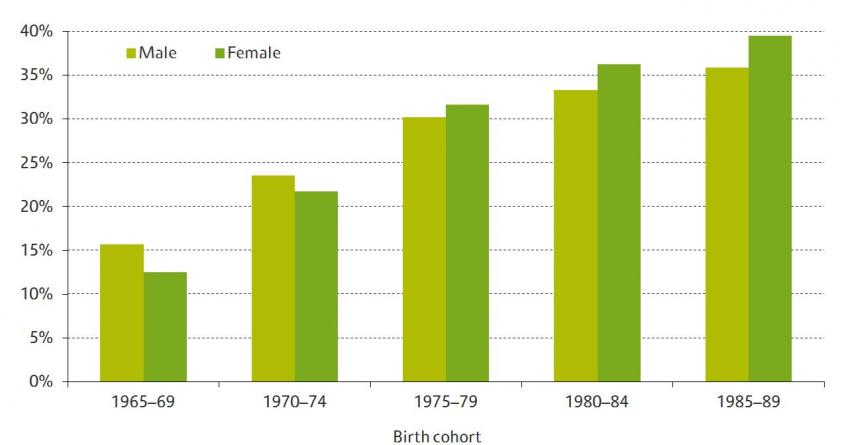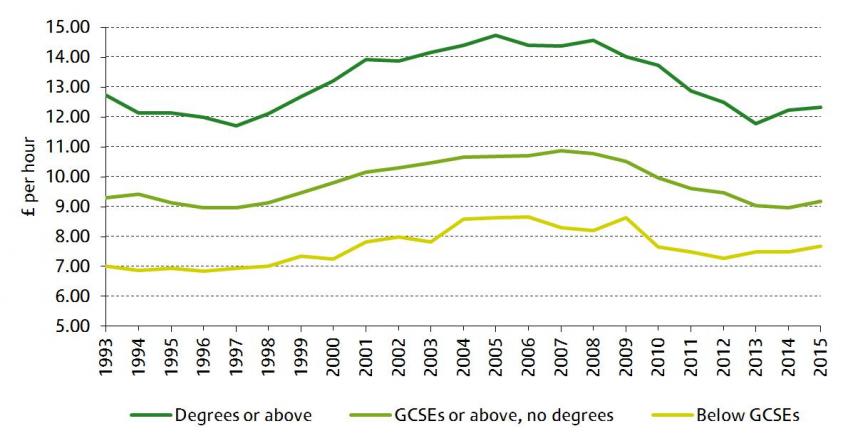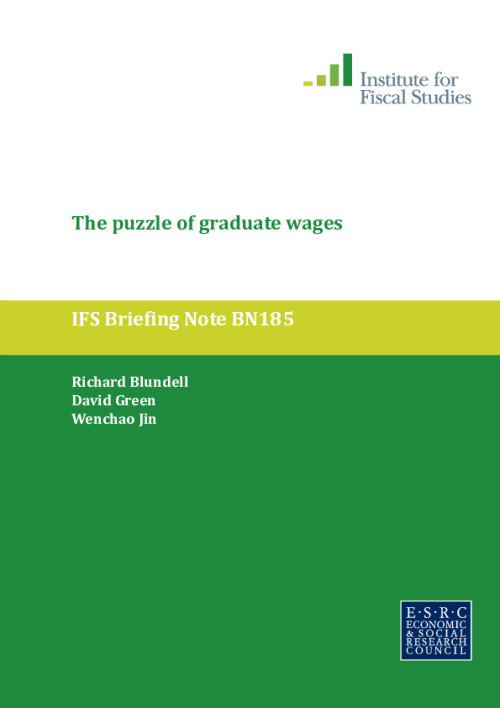The UK higher education sector has expanded remarkably over the past three decades. In 1993, 13% of 25- to 29-year-olds had first degrees or higher degrees. By 2015, this had roughly tripled to 41%. Naturally, one may wonder whether the big expansion has reduced the economic returns to having a first degree. We have all heard stories about graduate unemployment and graduates employed in low-wage jobs. But what do the data show and what can we learn from history?
This briefing note will document the historical trends of rising graduate numbers and their relative wages, and provide economic intuition for what is driving these trends. Understanding the past will be helpful in thinking about the future: if the proportion of graduates continues to increase (which is rather likely given current policies), will it lower graduate earnings?
- Fact 1: The UK has seen a rapid increase in the proportion of young people with degrees over the past three decades. Comparing across birth cohorts, the sharpest increase in the graduate proportion occurred between those born in the late 1960s and those born in the late 1970s.
Percentage of 25- to 29-year-olds with first degrees or above, by birth cohort and gender

Source: Authors’ calculations from Labour Force Survey 1992–2015.
- Fact 2: Despite the recent fall in the average graduate real wage, their wage relative to school-leavers’ has remained relatively unchanged. Indeed, at any given age, the wage differential between graduates and school-leavers has stayed essentially unchanged across birth cohorts.
Median real hourly wage of 25- to 29-year-olds, by education

Source: Authors’ calculations from Labour Force Survey 1992–2015. The deflator is the Consumer Price Index, ONS series D7BT.











